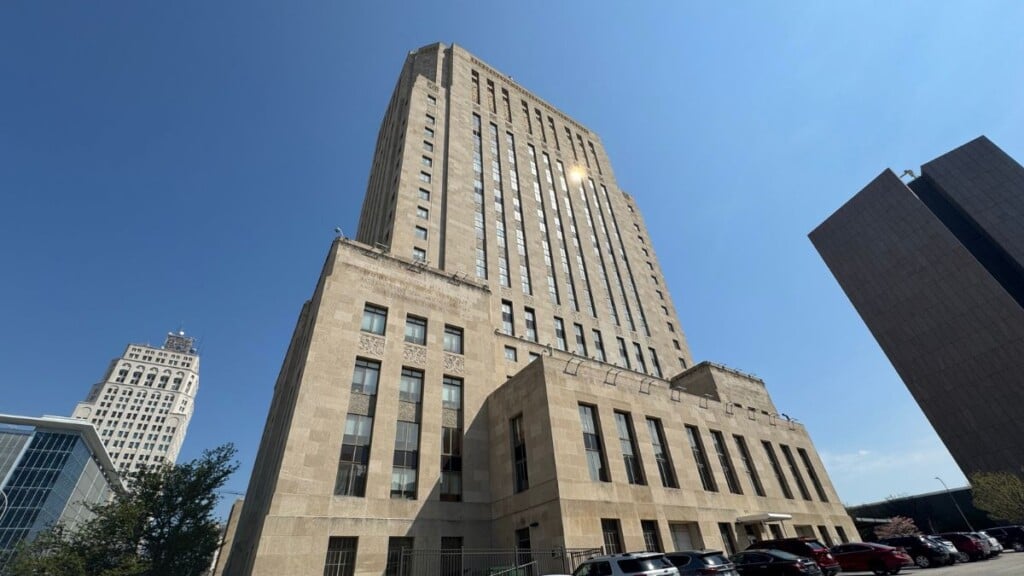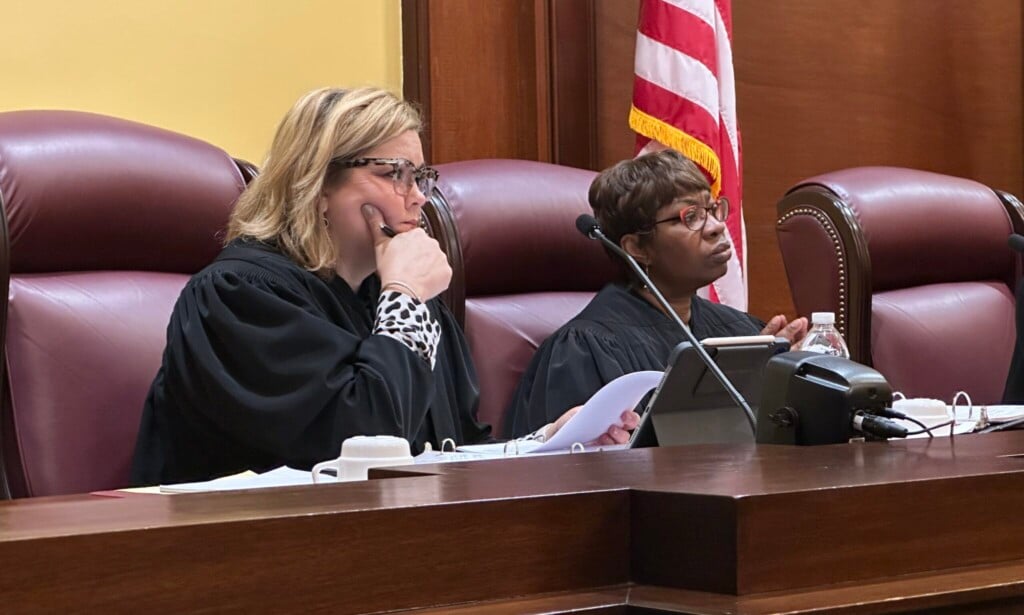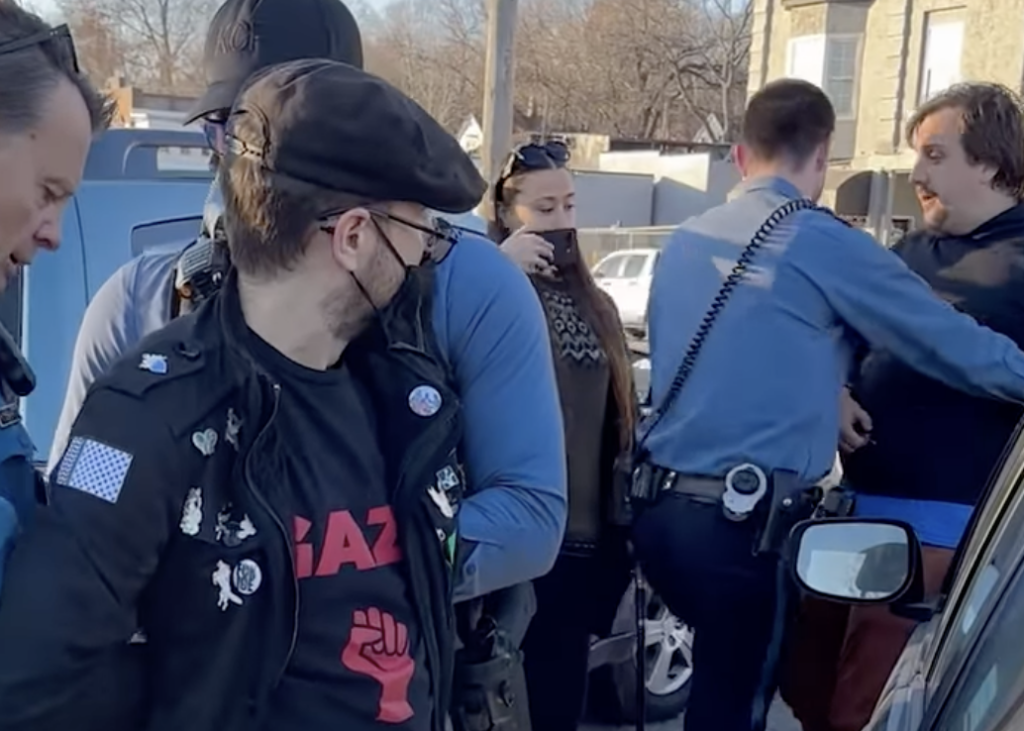Missouri auditor says treasurer put $35 million into wrong state fund
The money, interest on funds set aside for improvements to Interstate 70, should have been deposited in the general revenue fund, according to a new state audit.

Vivek Malek speaks Dec. 20, 2022, after being announced as the next Missouri State Treasurer by Gov. Mike Parson. An audit of Malek’s first year in office found he had misdirected interest on money set aside for I-70 improvements.(Photo courtesy Missouri Governor’s Office)
Missouri State Treasurer Vivek Malek improperly deposited almost $35 million in interest on a fund for improving Interstate 70 instead of putting it in the general revenue fund, State Auditor Scott Fitzpatrick said in a report issued Tuesday.
The audit said that the interest, although earned on the road improvement funds, should have gone into general revenue, as required by the law in place at the time. Lawmakers have subsequently allowed the interest in following years to remain in the road fund.
The audit separately found that Malek’s office failed to conduct annual audits of the MOScholars tuition assistance program as required by law, the report stated.
Malek took office in January 2023, appointed after Fitzpatrick resigned to be sworn in as auditor. The audit report says that for the period that Fitzpatrick was treasurer, all work on the audit was supervised by the office’s audit director. The audit that covered fiscal 2023 and fiscal 2024 gave Malek an overall rating of good.
In a response included in the audit, Malek said he disagreed with the finding about the improper deposits but accepted the second one about the annual audit. He said his office is working to put a contract for the audit out for bid.
With a bulging general revenue surplus approaching $8 billion at the start of 2023, then-Gov. Mike Parson proposed spending $859 million to widen and rebuild portions of I-70 near Kansas City, St. Louis and Columbia. Lawmakers bumped that to $2.8 billion, including $1.4 billion from general revenue, to widen the highway to three lanes in each direction across the state.
The remainder of the amount is to come from bonds issued by the Missouri Highways and Transportation Commission.
The general revenue was deposited in the dedicated fund soon after the start of fiscal year 2024 and collected interest until the first draw on it was made in May. As of June 30, and after earning more than $81 million of interest, almost $1.3 billion remained.
The bonds are being sold as money is needed for the project.
The treasurer’s office “provided no constitutional or statutory provision to support that (the I-70 funds) are authorized to retain the investment interest income in each fund,” the audit states. “Further, no other administratively created account has its interest income credited to the account by the (state treasurer’s office) unless there is a valid legal basis for such action, such as specific law, a court order, or a federal regulation.”
In his response, Malek defended the way the interest income was handled and said the auditor’s office “is alone in its conclusion that investment and interest income from these funds should be credited to general revenue.”
His office, the governor’s office and the General Assembly, Malek said, “are all of the clear opinion that the investment and interest income earned by these funds set aside for the reconstruction of Interstate 70 should be dedicated to road construction and improvements.”
Questions about how the interest was being credited were first raised in February 2024, when members of the House Budget Committee grilled Malek about it. A state law requires that earnings on all funds in the treasury, except those created by state law and specifically exempt, be credited to the general revenue fund.
The bulk of the interest was earned on the general revenue set aside for I-70 in a special project fund. Malek said at the time that it was not being returned to general revenue because of a memorandum of understanding between the governor’s office and the Office of Administration, which has spending authority for the portion that originally came from general revenue.
The budget for fiscal 2025, which ended June 30, and the current year, have provisions explicitly directing that interest receipts on money dedicated to the I-70 project — as well as additional money set aside for work on Interstate 44 — should be deposited in the project funds.
House Budget Committee Chairman Dirk Deaton, a Republican from Noel, said in an interview Tuesday that the interest provisions added to the budget were based on his and other legislators’ perception that the money had been misdirected during fiscal 2024.
Parson’s administration asked for the language last year and it has been continued, Deaton said.
“For me, it was an admission that, in fact, it was not handled properly in the first place,” he said.
In the audit report, Fitzpatrick agrees with that assessment.
The treasurer’s office “argues the inclusion of language pertaining to investment interest…in the fiscal year 2025 appropriations bills ‘ratified’” the way interest was handled in fiscal 2024. That is not so, the audit states.
“Furthermore, the inclusion of this new language pertaining to these funds in the fiscal year 2025 appropriation bills implies an awareness that such language was necessary to resolve the investment interest issue going forward.”
MOScholars program
The audit’s findings on the MOScholars program show that it issued $8.4 million in tax credits in fiscal 2023 to match donations to organizations authorized to offer tuition vouchers. The tax credits are equal to 100% of a donation but can only be used to offset 50% of a taxpayer’s liability in a single year.
The program, which received a $50 million infusion of general revenue for direct grants for the first time this year, was established in 2021. A lawsuit filed earlier this month is challenging the legality of the direct grants.
The law establishing the program requires annual audits that have not been performed, the audit found. The audit also found lax oversight of reports from the agencies that provide the tuition vouchers.
Both of the problems are being corrected, Malek said in the response. The office will review reports from the agencies more carefully and a contract will be offered through the state purchasing system for the required audits.
Missouri Independent is part of States Newsroom, a nonprofit news network supported by grants and a coalition of donors as a 501c(3) public charity. Missouri Independent maintains editorial independence. Contact Editor Jason Hancock for questions: info@missouriindependent.com.




